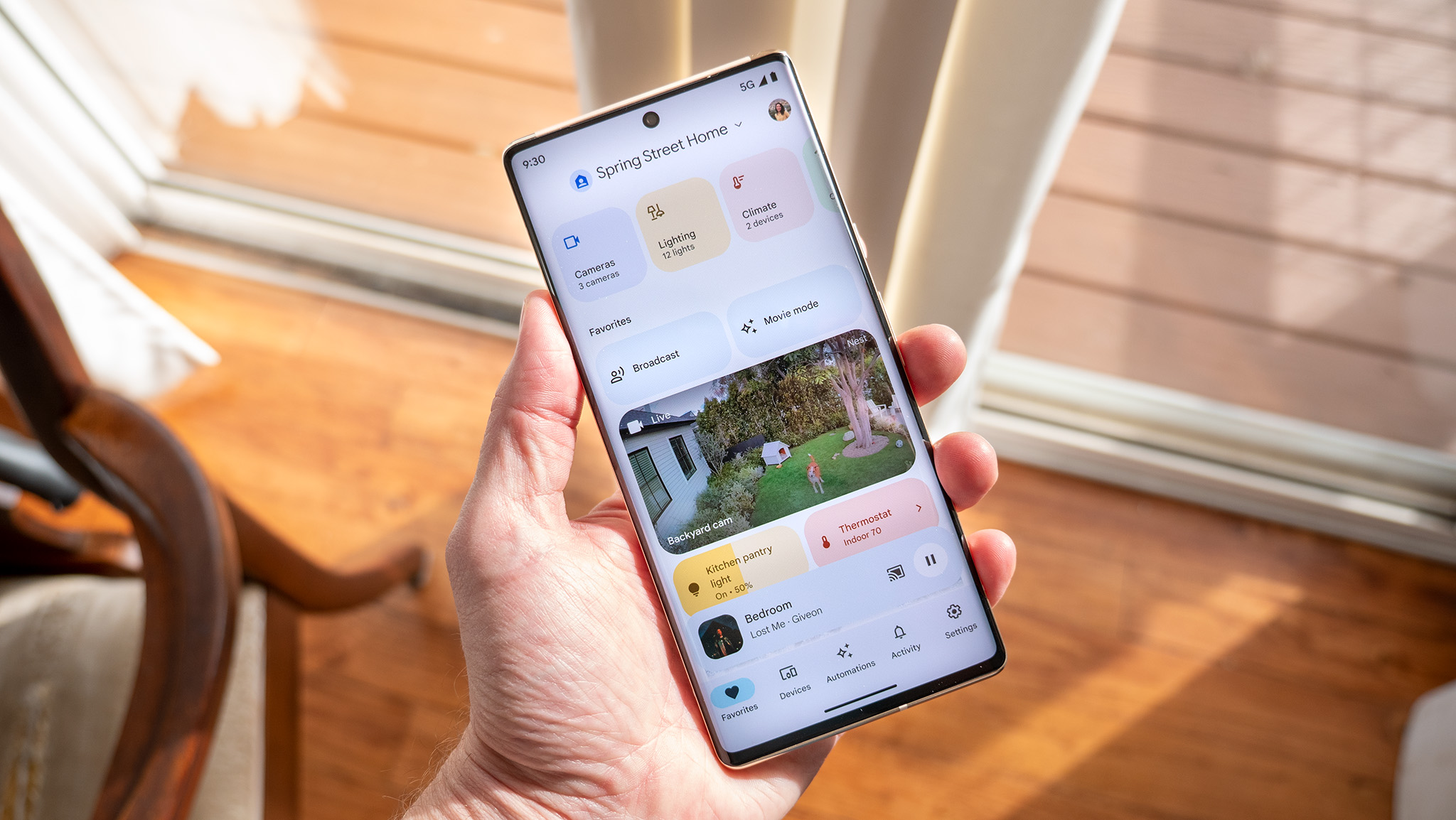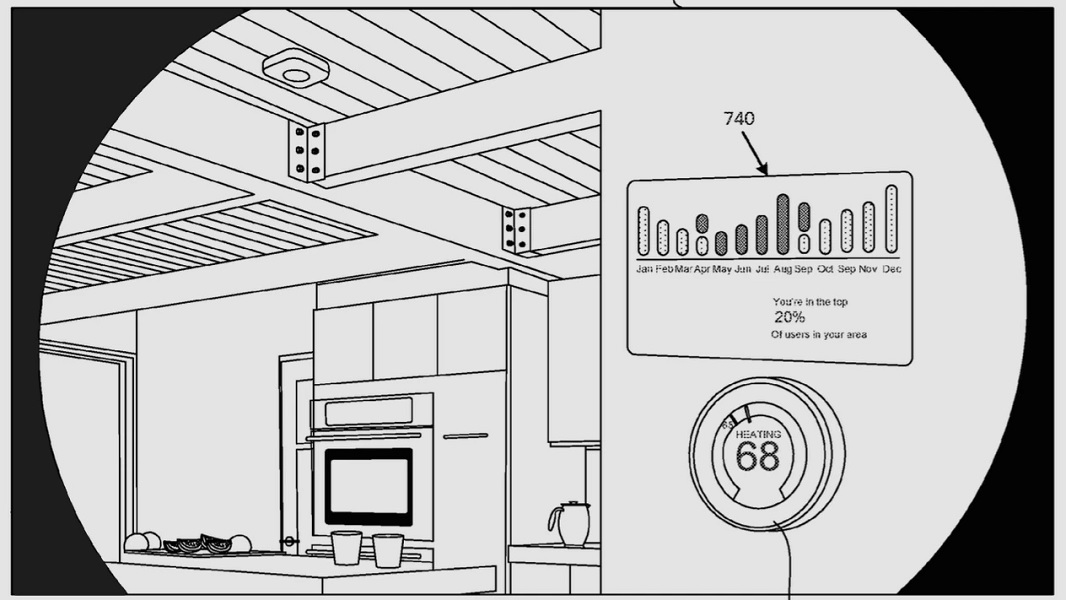
What you need to know
- Google has recently filed a patent for AR software that pairs directly with a consumer's smart home devices through smart glasses.
- When staring at a Nest speaker, users would see a virtual UI appear above it, housing media controls, album art, and more.
- After reportedly canceling its plans for Project Iris in June, Google is supposedly moving its interest into AR software rather than hardware.
Google's interest in creating AR technology seemingly waxes and wanes, but now, new information suggests it's looking to pair it with our smart home devices.
The company has filed a new patent, spotted by Wareable, which involves implanting an image sensor within a pair of smart glasses for virtual control. According to the patent, users staring at devices such as a Nest speaker or an Android TV would prompt a user interface to spring up above it through their glasses.
Users would then see options of control, activated via various pointing gestures.
The patent states, "The Ul object may be considered a virtual object that is positioned in a physical space as shown through the smartglasses. Referring to FIG. 8 (below), a Ul object includes UI controls for controlling the smart speaker and information about what is playing on the smart speaker."

Regarding a Nest thermostat, the company explains a user's gaze would afford them information such as "average monthly use." When looking at a Nest speaker, one would find virtual options to play media, search for music, album art, and other controls. The patent additionally mentions users may be able to surf the web using UI elements created virtually through a pair of smart glasses.
Additionally, users could use the software to easily turn lightbulbs on or off, so long as they aren't packed too close together. This appears to be a simple limitation for the software as it won't display its UI properly.
It's not clear when this could arrive on the market as the patent simply shows Google's plans. Furthermore, it's not likely Google will helm the hardware side of the equation. The company reportedly canceled its Google Glass successor, Project Iris, in June as its project lead, Clay Bavor, left Google's AR division. However, a recent patent shows that Google is looking into using a smartwatch as a mixed-reality controller, suggesting that the company hasn't completely abandoned its efforts.
Reports have also stated that Google is moving toward creating the "Android of AR," and this manifested digital UI in space fits the bill. At the very least, Google's software would be used in the likes of Samsung's upcoming XR headset, whenever that comes to fruition.







